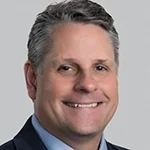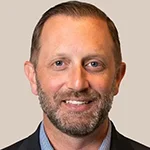I am making Sabbath plans for tomorrow and cannot help but think of Gabriel Sassoon, father of the seven Sassoon children who perished in a fire that tore through their Brooklyn home last weekend.
I am reminded of one of the quotes of Viktor E. Frankl, an Australian neurologist and Holocaust survivor who authored Man’s Search for Meaning in which he found meaning in all forms of existence, even the most sordid. He wrote:
"Human potential at its best is to transform a tragedy into a personal triumph, to turn one's predicament into a human achievement."
It has been nearly a week and the news is everywhere.
This was a particularly hard hit for many, not only due to the of the enormity of the tragedy, but also because the Sassoon children were observant Jews and the fire was ignited due to a faulty hot plate, a modern day application of the centuries old tradition of Sabbath observance.
On the Sabbath, Orthodox Jews are forbidden from using electricity. Therefore, at the onset of Sabbath, every Orthodox Jewish home turns on a hotplate or some variation of it, leaving it on all through the 25 hours of Sabbath.
Because it was the hot plate that ignited the spark, many people took to openly criticizing Orthodox observance for its modern adherence to archaic laws and customs, placing the blame for the fire on this ancient tradition of Sabbath observance, and even going so far as to claim that the fire may not have started if they had not observed the Sabbath.
In practice, thousands of Orthodox Jews use hot plates every Sabbath and still fires ignited by the hot plates are extremely rare. Furthermore, according to the National Fire Protection Association, U.S. firefighter teams responded to 1.24 million fires in 2013 alone. Of those fires, nearly 50% were cooking fires. Clearly, Sabbath observance is not the culprit.
On the complete opposite side of the spectrum, Rabbi Shmuley Boteach, a prominent Chabad rabbi who writes for The Observer, underlined the fact that there is nothing more sanctified by the Torah than a human life.
He took this opportunity to encourage people to continue observing Sabbath. Rabbi Boteach states that by placing the blame with God and demanding the same compassion from God that He commands us to bestow upon others in His Torah, we are only reinforcing our faith in God.
While Rabbi Boteach brings various sources to support his viewpoint, I find the blaming very cynical and dark, almost regressive. No amount of blaming will bring back these children, nor will any amount of anger directed at God. Nothing will alleviate their father’s anguish.
So what are we left with if there is no blame to be placed?
Rabbi Boteach says that we must look back at our suffering. To express our anger and make demands of God. I think, instead, we must look ahead to the future and make demands of each other and of ourselves for a better future.
We must demand of each other the same calibre of staunch adherence to warnings and guidelines for our physical safety that we currently award the laws of Sabbath.
We cannot know why these seven souls were taken from their parents. We can, however, make it our business to know that since the fire, the FDNY has distributed 200 smoke alarms, 16,000 batteries and hundreds of fire safety pamphlets in English and Yiddish.
Dozens of religious communities are reaching out to their congregants and educating them about little known fire hazards in the home.
According to Jewish mysticism, God created man solely for one purpose: to make the world a better place.
The blaming and shaming play not part in bettering our world. To honor the memory of these children by making efforts to ensure that a tragedy like this never strikes again certainly does.
By taking lessons from our pasts and applying them to our futures, and through education and awareness, the Sassoon children live on, their memory helping us make the world a better place.
* * *
Ariela Aharon is an Orthodox Jew and patriotic American expat. She currently resides in Jerusalem, Israel where she studies psychology and volunteers as an EMT. Ariela is presently doing freelance work and can be reached directly at [email protected]. She wrote about the Hampton's eruv in February.


 Husch Blackwell Strategies has added FleishmanHillard alum Michael Slatin as a principal in its public affairs group.
Husch Blackwell Strategies has added FleishmanHillard alum Michael Slatin as a principal in its public affairs group. Rory Cooper, a veteran Republican operative and policy specialist, has joined Teneo’s Washington office as senior managing director in its strategy & communications practice.
Rory Cooper, a veteran Republican operative and policy specialist, has joined Teneo’s Washington office as senior managing director in its strategy & communications practice. Brian Fallon, who served as national press secretary for Hillary Clinton’s 2016 presidential run, is signing on next month as Vice President’s Kamala Harris’ campaign communications director.
Brian Fallon, who served as national press secretary for Hillary Clinton’s 2016 presidential run, is signing on next month as Vice President’s Kamala Harris’ campaign communications director. TikTok is nothing more than a Chinese propaganda tool that poses “a grave threat to America’s national security and, in particular, impressionable children and young adults,” say two Congressmen who want the platform registered as a foreign agent.
TikTok is nothing more than a Chinese propaganda tool that poses “a grave threat to America’s national security and, in particular, impressionable children and young adults,” say two Congressmen who want the platform registered as a foreign agent. Public Strategies Washington has added Abbie Sorrendino, a former aide to now Senate Majority Leader Chuck Schumer.
Public Strategies Washington has added Abbie Sorrendino, a former aide to now Senate Majority Leader Chuck Schumer.


 Have a comment? Send it to
Have a comment? Send it to 
No comments have been submitted for this story yet.